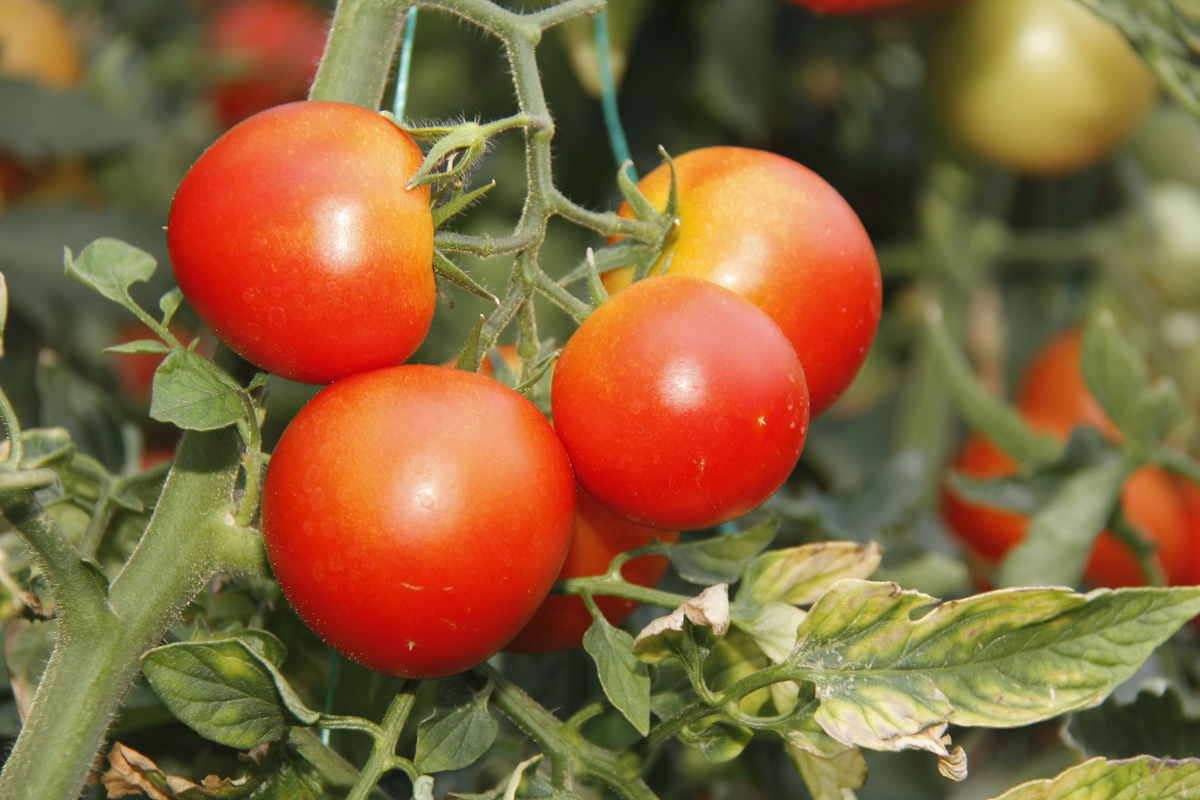
Gene Editing Improves Biotic and Abiotic Stress Reponse of Tomato
January 17, 2024| |
A study published in Frontiers in Plant Science shows that editing the SlHyPRP1 and SlDEA1 genes of tomato improves its biotic and abiotic stress responses. This study has evaluated the drought, salinity, bacterial leaf spot, and bacterial wilt tolerance response of tomatoes.
Tomato has long been an essential crop in different regions and countries worldwide. However, the production of tomatoes has also faced various challenges related to the different stresses of plants. Previous studies have shown the role of SlHyPRP1 and SlDEA1 genes in response to stresses on tomatoes. Hence, the researchers used CRISPR-Cas9 genome editing technology to improve the stress tolerance of tomatoes.
The edited plants showed higher chlorophyll and proline content levels under abiotic stress conditions. Reactive oxygen species (ROS) accumulation and cell death count per total area of leaves and roots are also reduced under biotic stresses with the edited plants. The results of this study accelerate current research in developing crop varieties that can withstand stresses caused by climate change.
For more information, read the abstract from Frontiers in Plant Science.
| |
You might also like:
- Gene Editing Creates Early Flowering Mutants of Tomato
- Researchers Develop Tomatoes with Higher Levels of Provitamin D3
- Japan Starts Sale of Genome-Edited High-GABA Tomato
Biotech Updates is a weekly newsletter of ISAAA, a not-for-profit organization. It is distributed for free to over 22,000 subscribers worldwide to inform them about the key developments in biosciences, especially in biotechnology. Your support will help us in our mission to feed the world with knowledge. You can help by donating as little as $10.
-
See more articles:
-
Gene Editing Supplement (January 17, 2024)
-
Research and Tools
- New Tool Predicts TALEN Binding Sites Accurately
- Researchers Pinpoint Efficient Marker for Gene Editing Rice
- Gene Editing Improves Biotic and Abiotic Stress Reponse of Tomato
- Researchers Discover Temperature Tolerance Gene in Wheat
- Disease Resistant Gene-edited Rice Offers Hope for Small-scale Farmers in Africa
- Gene Editing of Medicinal Plant Enhances Active Compounds
-
Read the latest: - Biotech Updates (February 18, 2026)
- Gene Editing Supplement (January 28, 2026)
- Gene Drive Supplement (February 22, 2023)
-
Subscribe to BU: - Share
- Tweet

